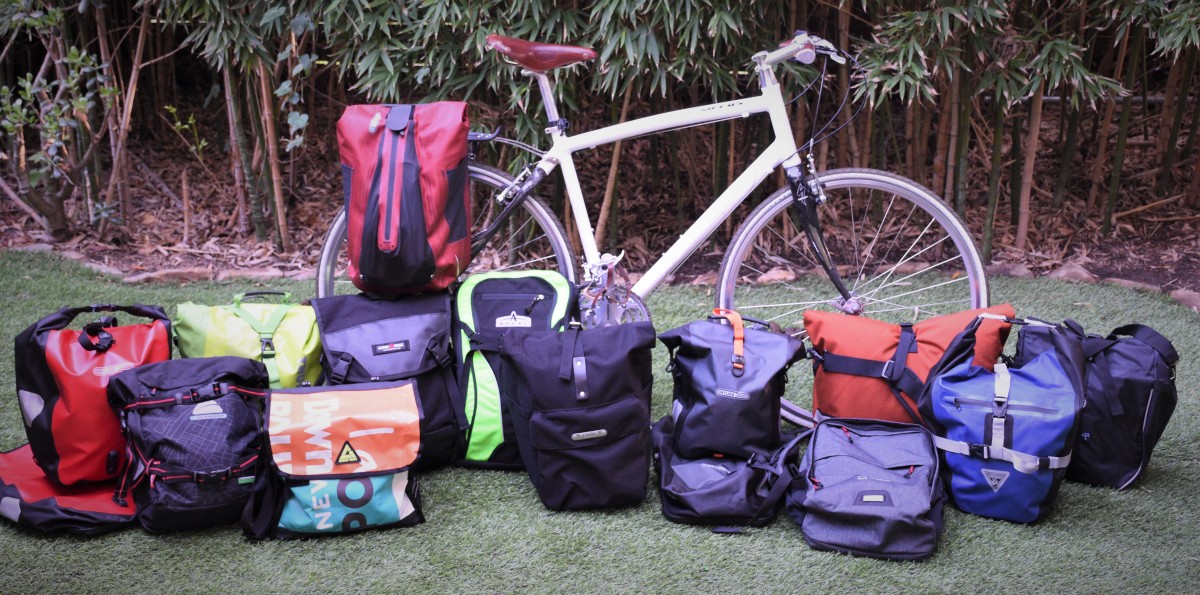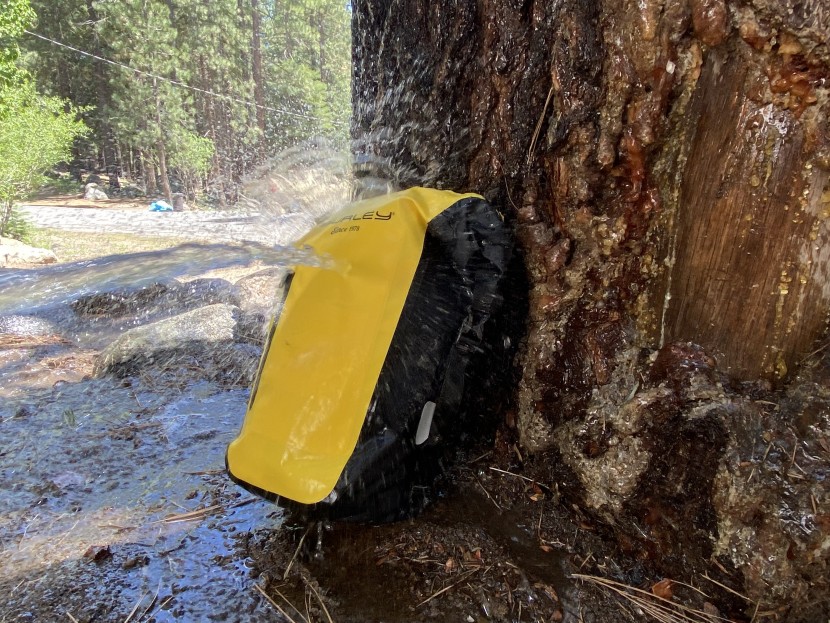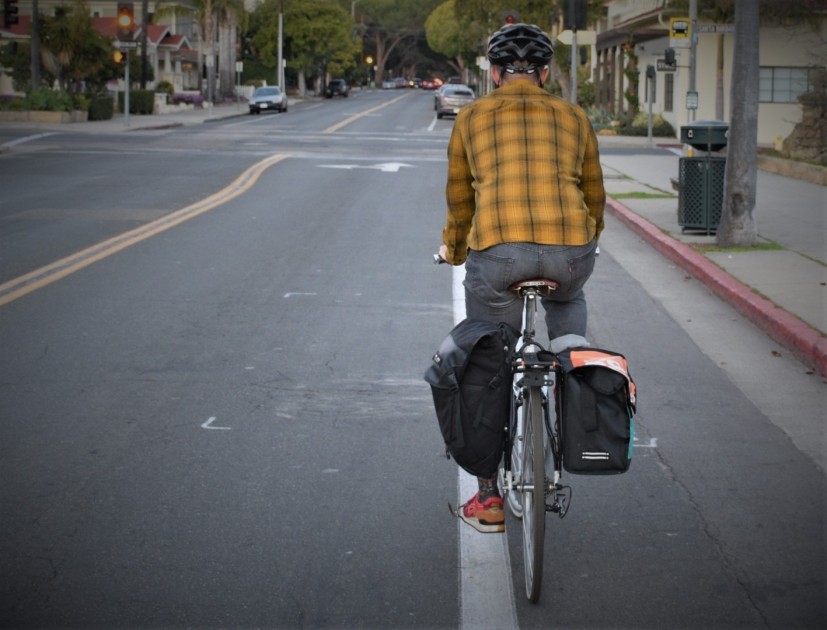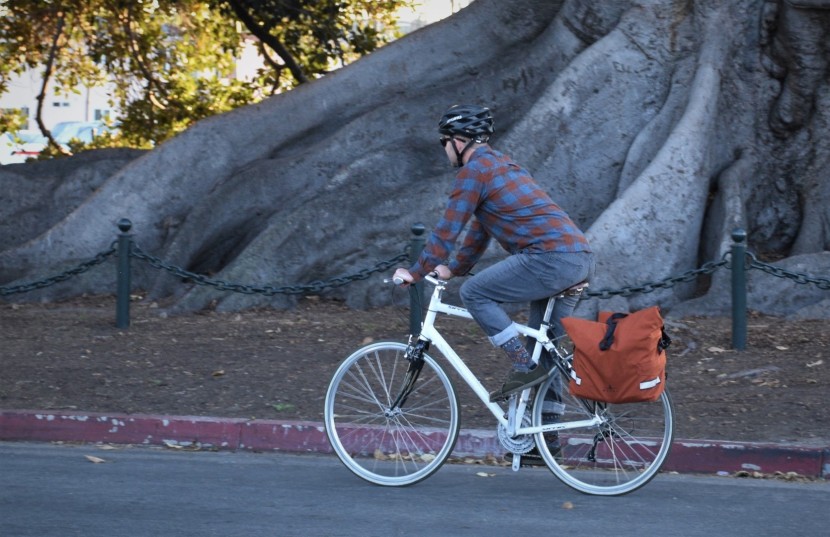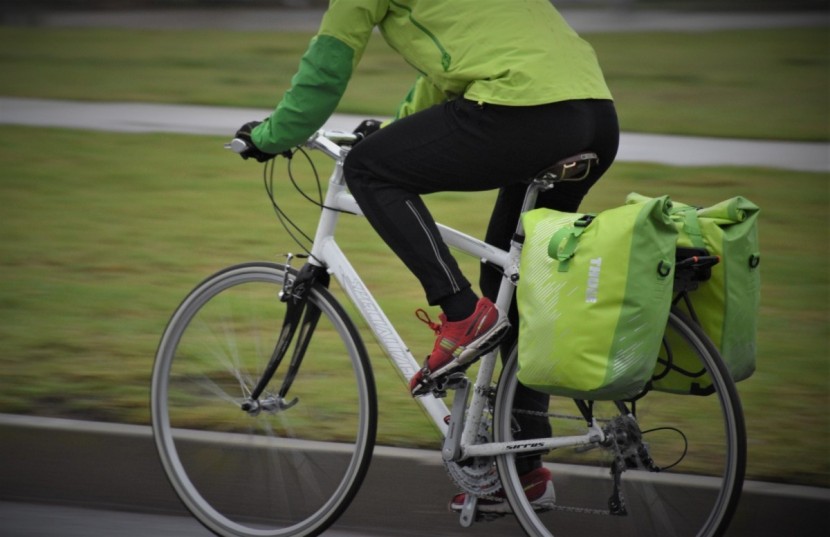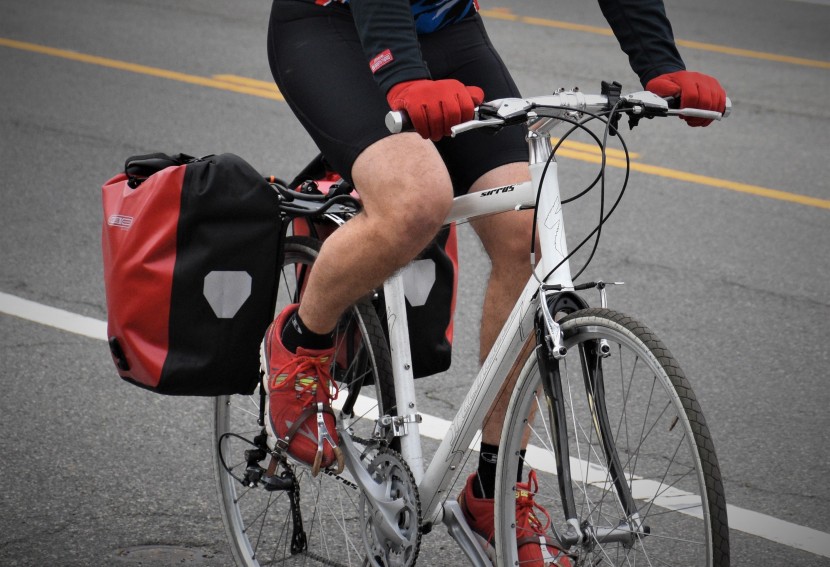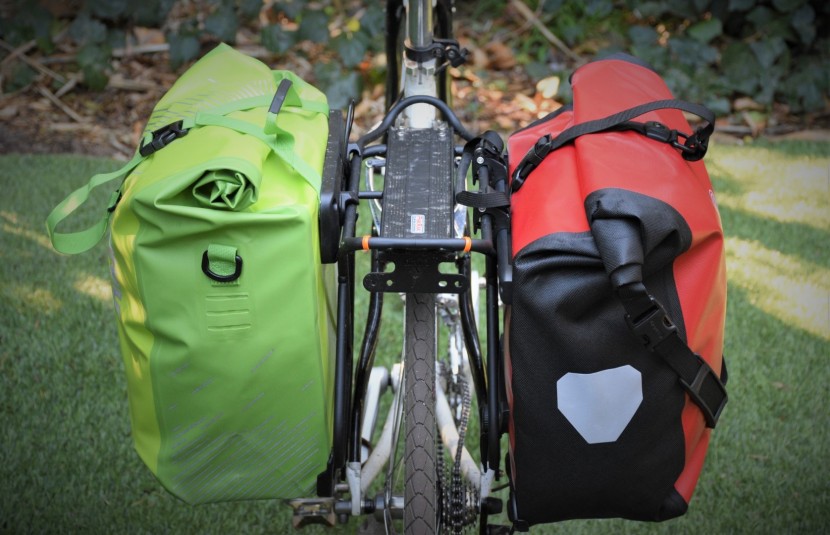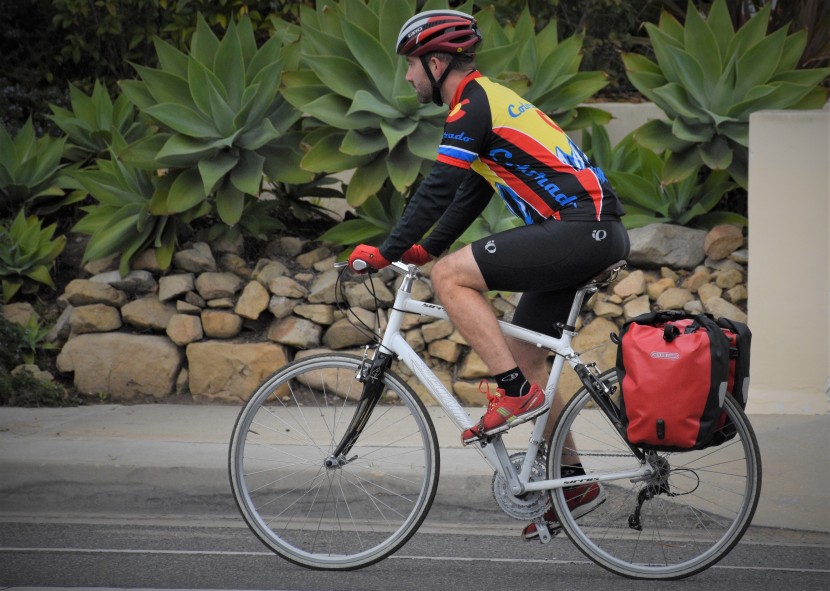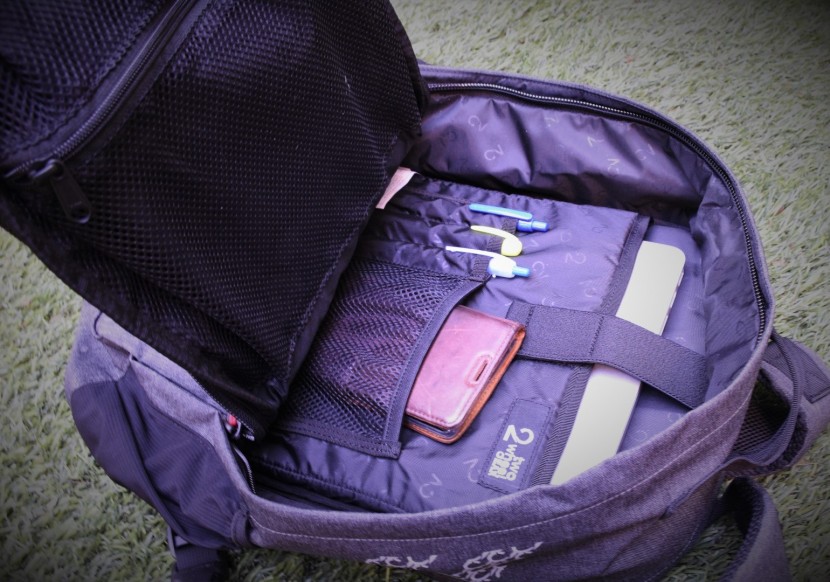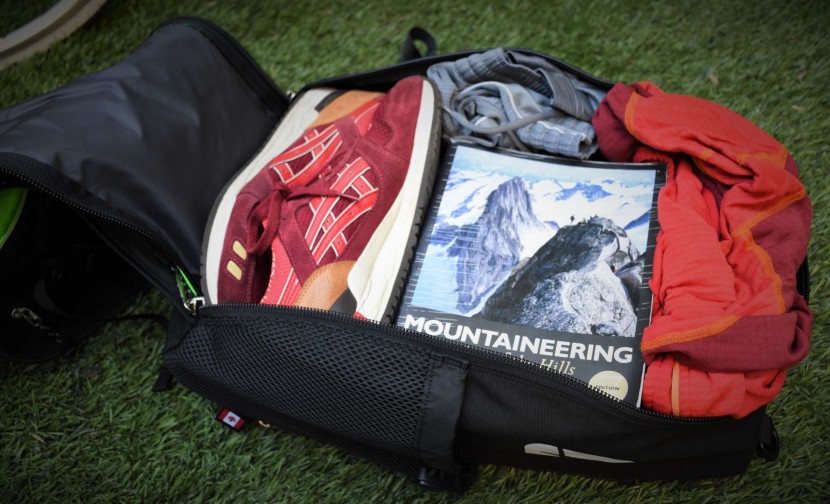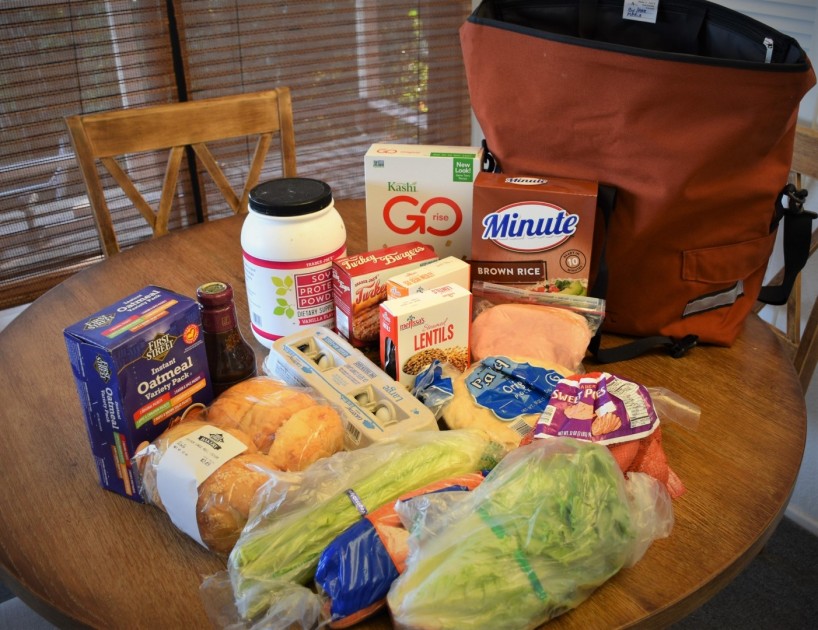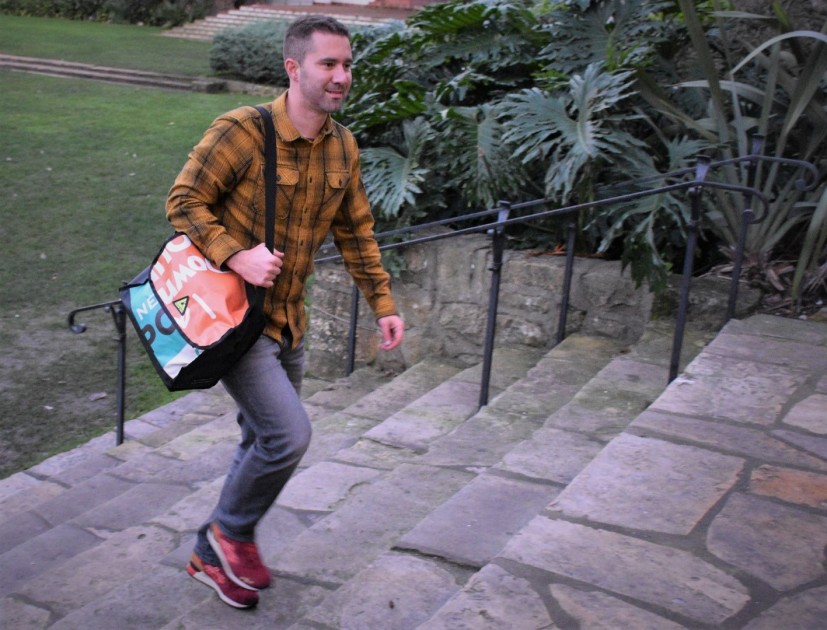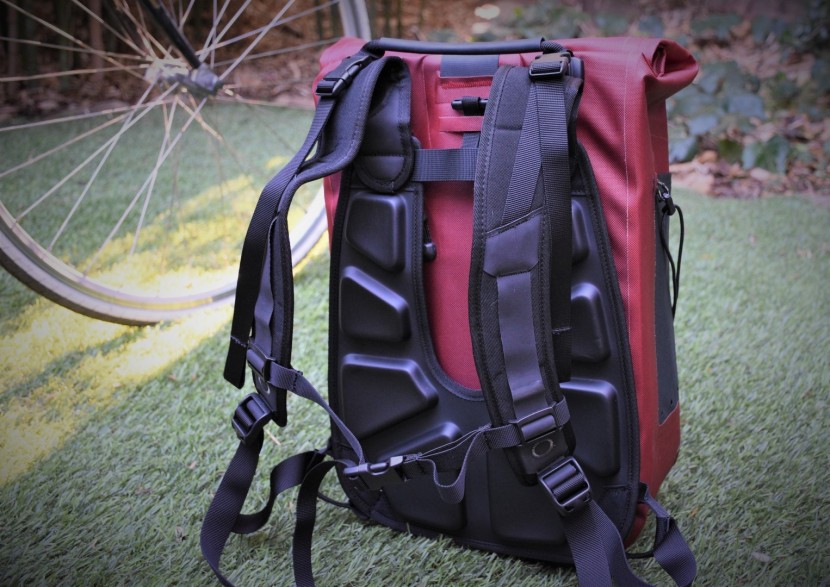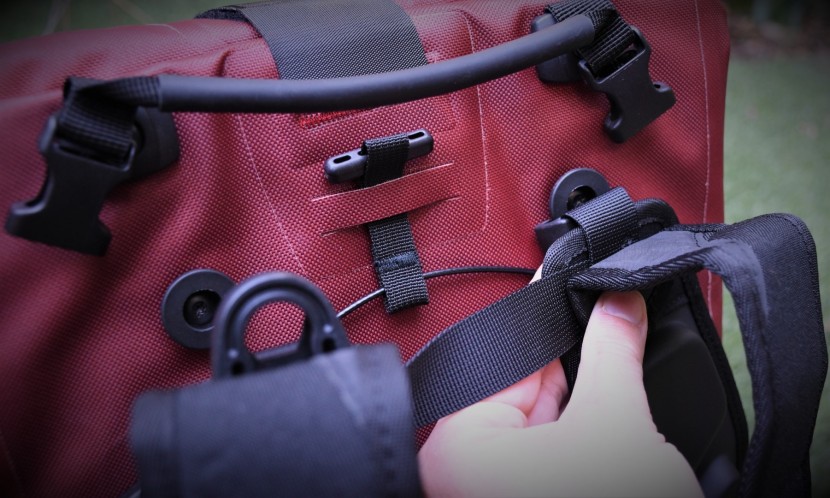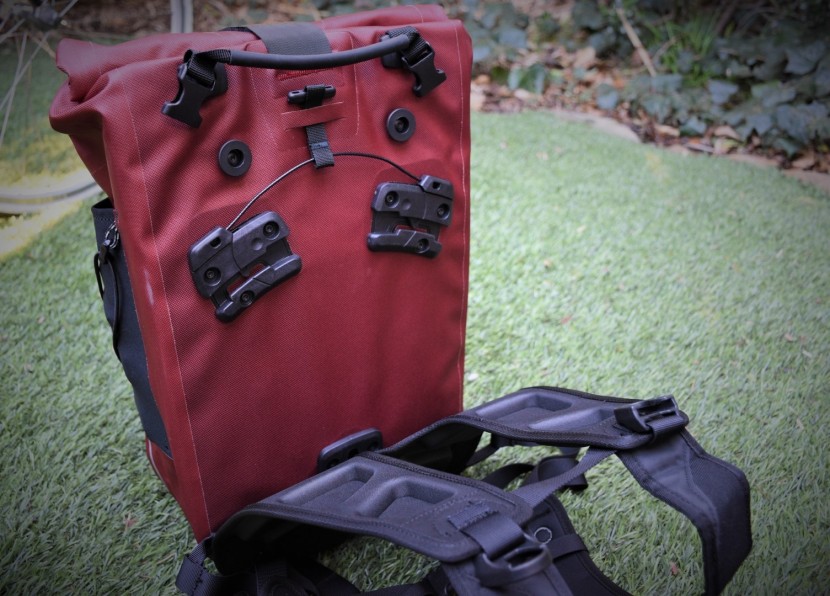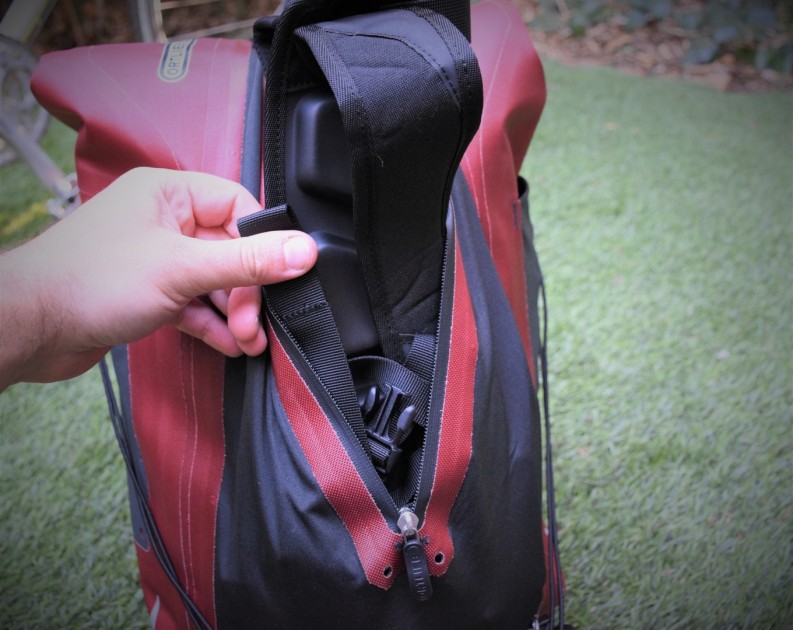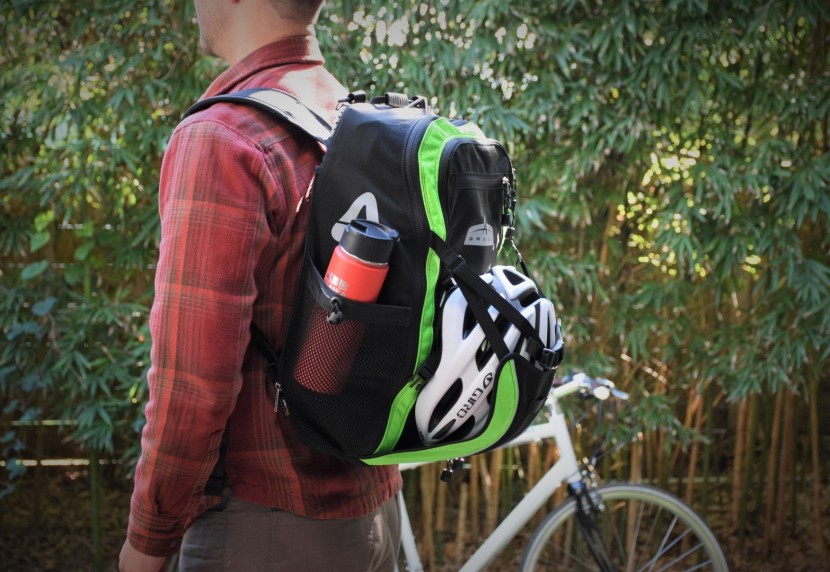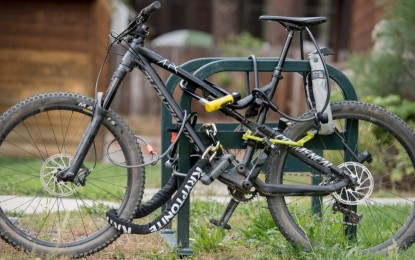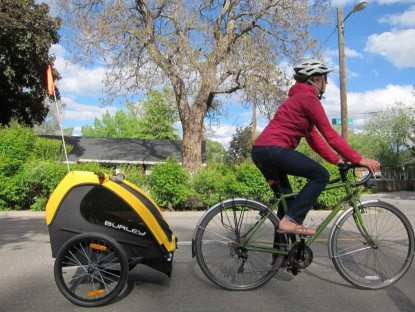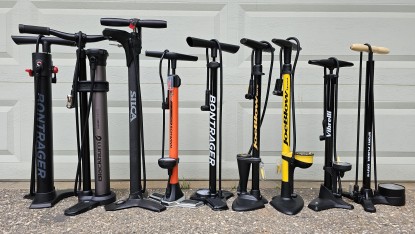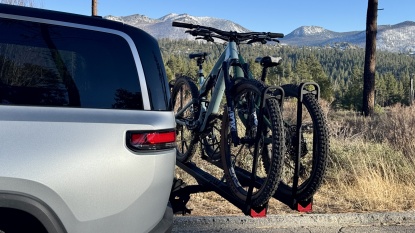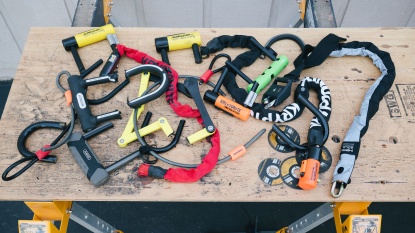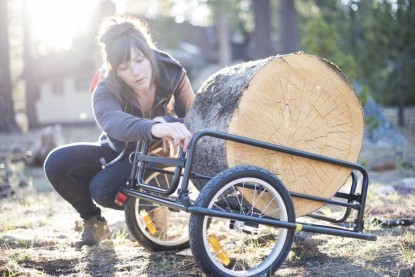Congratulations! If you're reading this article, then a good amount of human-powered, two-wheeled transportation is likely in your future. We think that traveling by bicycle is a great way to get around that's fun and healthy, helps reduce vehicle emissions and congestion on our roadways, and allows access to many places that cars are unable to reach. Adding a new pannier or set of panniers to your bike is an easy way to instantly increase your cargo-carrying capacity, protect your gear from the elements, or make your ride more comfortable by eliminating the need to wear a backpack.
Whether you're planning on exploring the world by bike, commuting to work or school, or simply cruising around town to run errands or get groceries, we'll arm you with the right information to find the best product for your needs. Once you know what to look for, be sure to check out our Best-in-Class Bike Panniers Review and individual product reviews to help narrow down your options and find the right pannier for you.
Bike panniers come in all shapes and sizes, are built from different types of materials, are equipped with different mounting systems, and have all kinds of special features. Some have shoulder straps, some have backpack straps, and some have no straps at all. Some models might look quite similar but might also have small nuances that have a massive impact on their user-friendliness. Luckily, we put the top models on the market to the test, closely analyzed their similarities and differences, and evaluated their performance in the field. We'll help you sort through all this information so that you know exactly what to look for to meet your needs.
Why Do You Need Bike Panniers?
Throughout the years, cyclists have found numerous clever ways to turn their bicycles into better cargo-carrying carriages. Baskets, racks, trailers, and even extended frames have all provided greater utility to allow bikes to haul more than just their operators. Panniers offer a unique and flexible storage solution that combines useful carrying-capacity on the bike that is easily removed for transport off the bike.
Bike panniers allow riders of all shapes, sizes, and ability levels to comfortably haul their gear while in the saddle. They're far more practical for cyclists than backpacks because they enable you to ride without a nagging weight pulling at your neck and shoulders, providing a much more comfortable ride and more mechanically efficient body position. A well-designed pannier will also be easy to remove from the bike and will allow you to quickly transition into pedestrian mode with a shoulder strap or even full-on backpack shoulder straps. If you plan on using your bike to travel, commute, or run errands around town, then a pannier will help you reach your destination with gear in tow more comfortably and efficiently.
Bikepacking vs. Bike-Touring
Bikepacking is a relatively new subset of cycle touring where all of your gear is packed into specially designed bags that attach directly to your handlebars or bike frame without any additional hardware like a bike rack. The idea here is to minimize weight and streamline your riding profile for more aerodynamic travel. Many bikepackers will ride with mountain bikes with either front or dual suspensions to allow them to travel off-road and on more rugged and challenging terrain.
Bike-touring is the precursor to bikepacking, and is generally understood as the use of a bicycle to travel from one place to another, most often on paved surfaces. In this activity, all of your gear is typically carried with bike panniers that are attached to additional bike racks over the front and/or rear wheels. Bike touring gear will generally focus on evenly distributing the weight on a bicycle for comfortable and efficient travel, as well as easy mounting and removal of the panniers. To be clear, this review focused on bike touring panniers and not bikepacking bags. The bike panniers in this review all require an additional bike rack to be mounted to your bike.
Before purchasing a bike rack, check to make sure that it will fit your bike frame. You can also purchase adaptor brackets if your frame isn't set up correctly to add a rack.
Different Types of Bike Panniers
While all the panniers in this review can be mounted to a bike rack and easily removed for transport off the bike, that is where the similarities end. Some types of panniers have a single giant storage compartment, while others have several smaller pockets and sleeves for better organization. Some have heavy-duty waterproof materials and fully-sealing closures for maximum protection from the elements, while others have simple zippered or velcro closures for easier access. Some have highly adjustable mounting systems to dial in a perfectly snug fit, while others have a simple fixed hook system for quicker mounting and removal. It can be confusing to make sense of all the different pack styles and features, but we've been able to identify definite trends regarding which types of design features are found on products best suited for certain riding styles. We've broken down the pannier market into a handful of general categories whose products each have similar features depending on the intended use.
Touring Panniers
Touring style panniers are probably what most people think of when they picture a bike pannier and are one of the most common types of products in our review. These models typically come in a pair and are designed to be fully waterproof or at least weather-resistant to withstand long rides in harsh conditions, while protecting their contents from the elements. They are built from durable materials that can take prolonged abuse on multi-day trips where exposure to extreme wear and tear is bound to happen. The best touring panniers will have rock-solid mounting hardware for a secure mount, and lightweight materials that require less pedal power during long hauls. These panniers are often designed with one main storage compartment with a roll-top closure that offers great capacity while keeping all your gear secure in a single weatherproof chamber. These models typically have fewer features like extra pockets, straps, or handles, since they are purposely built for utility and durability.
If you are in the market for a touring pannier, you'll want a product that is durable and waterproof. We've found that roll-top closures are the best for keeping the elements out and keeping your contents secure and dry. For a secure attachment to your bike, we recommend a mounting system with adjustable mounting hooks and an adjustable lower support hook, which both provide the best security once they are adjusted to fit your bike. For a high-quality model that checks all of these boxes and is the longtime standard for touring panniers, we highly recommend our multiple time Editors' Choice Award Winner Ortlieb Back Roller Classic.
Commuting Panniers
Commuting panniers are specifically designed to offer utility to folks who primarily use their bike to travel to work, school, or other local destinations. They typically aren't intended for long-distance rides but are built to offer more comfort and easier use. Since they are usually designed for shorter riding distances, commuting panniers won't always be fully waterproof but are typically at least weather resistant or include a rain cover. Because they get mounted and removed from the rack more frequently than touring panniers, commuting panniers will usually have very strong and easy to use mounting systems. They should also have options to carry the bag comfortably while off the bike, preferably in the form of an adjustable, removable shoulder strap. Most commuting panniers also have several internal or external pockets to help organize contents like books, laptops, and keys, and are often some of the most stylish bags as well!
When looking for a commuting pannier, you'll need to consider how long your commute is, what type of weather conditions you typically face, and how much storage volume you'll need. If you regularly face longer rides in harsh weather conditions, a waterproof bag is likely necessary, but if you have a shorter ride with only occasional rain or sprinkles, you can probably save some money and go with a pack that is merely water-resistant. If you commute to work or school with only a few books, office supplies, and lunch, then you'll probably want a pack with more pockets and storage options, and if you add in a change of clothes for soccer practice or the gym, then you'll need to look for something with a larger storage capacity.
Urban Panniers
Urban panniers are a bit more of a nuanced category than touring or commuting since you likely could use both touring and commuting panniers to accomplish the tasks of an urban pannier. However, urban style panniers have a prominent distinction from the two other categories because they are usually designed to carry bigger and bulkier items. Urban panniers will most often be used for grocery shopping or running errands, and therefore should be large enough to fit a standard grocery bag and should have square dimensions to allow for easy packing of boxed goods.
If you're in the market for a pannier for general urban or town use, then you'll need to consider how much storage capacity you need, what kind of carry system you'd like for the bag, and how easy or difficult it will be to mount or remove a fully loaded bag from your bike. The best urban panniers will have a large storage compartment like mentioned before, will have strong handles and/or shoulder straps for easy carrying, and will have a tough yet simple to use mounting system for repeated attachment and removal.
Backpack Panniers
While backpack style panniers could certainly fall under the category of urban or commuting bags, there are enough standout options for convertible backpack panniers to receive their own recognition! The genius behind backpack panniers is that they feature bike mounting hardware as well as shoulder straps, allowing you to seamlessly transition from cyclist to pedestrian. The storage capacity and overall function of these panniers are similar to commuter bags, except that you can choose to carry them on your back when not on the bike. Some backpack panniers have shoulder straps that stow away, while others require that you affix the shoulder straps each time you want to use them as a backpack. These types of panniers are super convenient when you spend a good amount of time carrying your bag on your back as well as on your bike.
If you're considering a backpack style pannier, the main things to consider are how long your commute is and how long you'll typically be wearing a pack when you're off the bike. If you have a long commute that would make it uncomfortable to wear a backpack while riding, and then you'll be wearing the pack around most of the day (like at school), then a convertible backpack pannier makes sense. If you have a shorter commute, though, it is likely more cost-effective to simply purchase a normal backpack or shoulder bag to wear while riding, instead of a more expensive pannier. And if you have a longer commute that necessitates a pannier, but then you mostly stay in one spot all day (like at an office), you can probably find a high-quality pannier for a lower price if you forgo the backpack straps.
Conclusion
We hope that this was a useful guide to help you gain a better understanding of the wide array of options that are available in today's bike pannier market. Whether you plan on using a pannier for touring, commuting to work or school, or just cruising around town, we hope that this helps you find the product that's right for you, and wish you many miles of happy and safe travels!

